Vietnamese mouse-deer
The mouse-deer, whose scientific name is Tragulus Versicolor, is one of the most enigmatic ungulates in the world. Prior to 2018, this species was known only from five museum specimens – four collected between 1906 and 1910 and a single specimen from 1990. No live animals have ever been examined by a biologist, although in April 2018 the first-ever photographs of living animals were obtained through the use of remote-sensor cameras in the coastal forests of southeastern Vietnam.
Based on a very limited sample, the Tragulus Versicolor appears to be generally smaller than the lesser Malayan chevrotain (Tragulus kachil) which is also found in Vietnam. As the name suggests, the hindquarters of this species are gray, extending from behind the shoulders to the rump and sometimes described as a “saddle.” These gray hairs have white tips, imparting a slightly grizzled appearance. The head, neck, and shoulders, in contrast, are bright golden brown, save for the nape of the neck which is washed with dark gray. The hair on the neck is particularly long and coarse. The golden-colored throat is marked with three thick white stripes which radiate from the pale underside of the jaw; the central stripe continues uninterrupted to join the white belly. The tail is white underneath; its upper parts are silvery, transitioning to golden near the tip. All four legs are yellowish-brown. The rounded ears are large and grayish brown, and there are no distinctive facial markings. Males develop long, tusk-like upper canine teeth which protrude from the mouth.
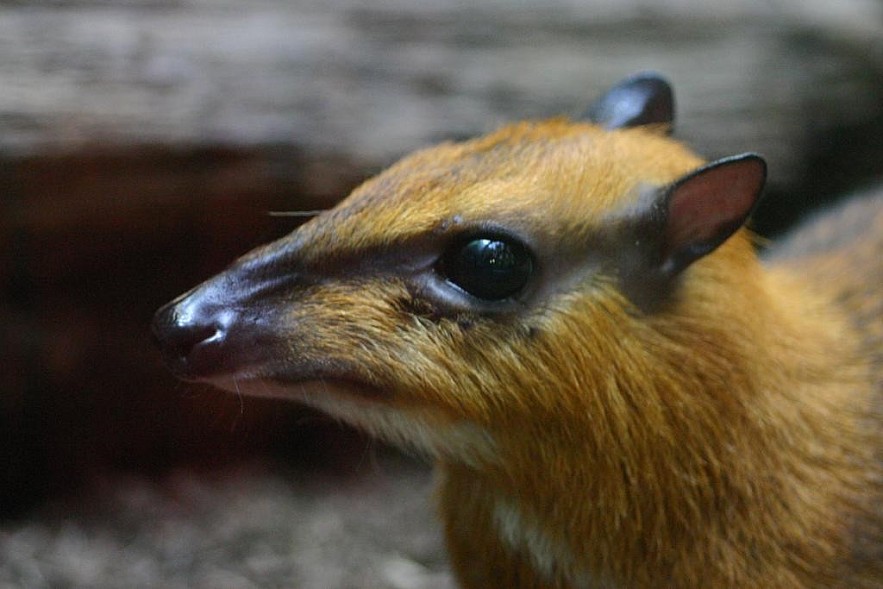 |
| Photo: wapa |
According to Prof. Dang Huy Huynh, Tragulus Versicolor is endemic to Vietnam and has a very small size in the ungulate group, adult specimens only weigh about 3-4 kg.
The main food sources of this species are fruits, fungi, and plants. Tragulus Versicolor is a species listed in the Vietnam Red Book in 2000 at level V in the taxonomy of animals at risk of extinction.
A series of prestigious international newspapers CNN, Guardian, and New York Times continuously reported that the Tragulus Versicolor was found in a forest in Khanh Hoa province (Vietnam) in early November 2019.
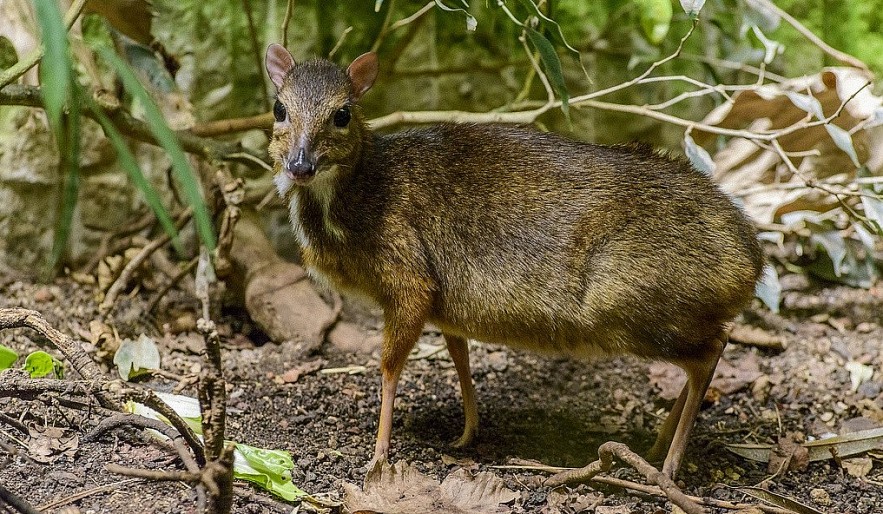 |
| Photo: craunicasdefauna |
Vietnamese crested argus
The Vietnamese crested argus, scientific name Rheinardia ocellata, is a large and spectacular peafowl-like species of bird in the pheasant family with dark-brown-spotted black and buff plumage, a heavy pink bill, brown irises, and blue skin around the eyes. The head has two crests; the hind crest, which extends down the occiput, is erected when alarmed and during intentional behaviors including pair bonding and courtship displays. The male has a broad and greatly elongated tail of twelve feathers. The tail covert of the male is the longest of any bird and is believed to contain the longest feathers to occur in a wild bird; the Reeves’s pheasant has tail feathers of similar length but which are considerably narrower. The tail coverts measure up to 1.73 m (5.7 ft) in length, giving the bird a total length of 1.9 m to 2.39 m (6.2 ft to 7.8 ft).
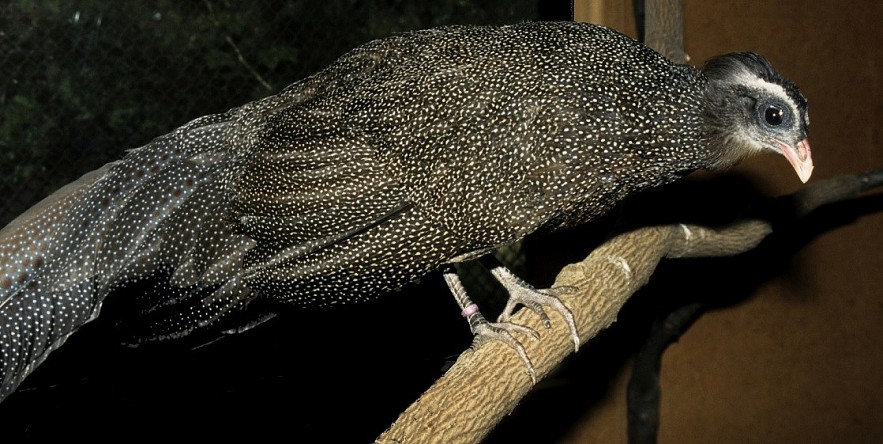 |
Rheinardia ocellata is the only species of the genus Rheinardia. They are considered one of the most beautiful wild birds in Vietnam. Their fur is buff and black with dark brown spots, the skin around the eyes is blue, and the beak is red.
This species is widely distributed in Bach Ma national park, mountain pass forest in A Luoi, and Ke Go nature reserve.
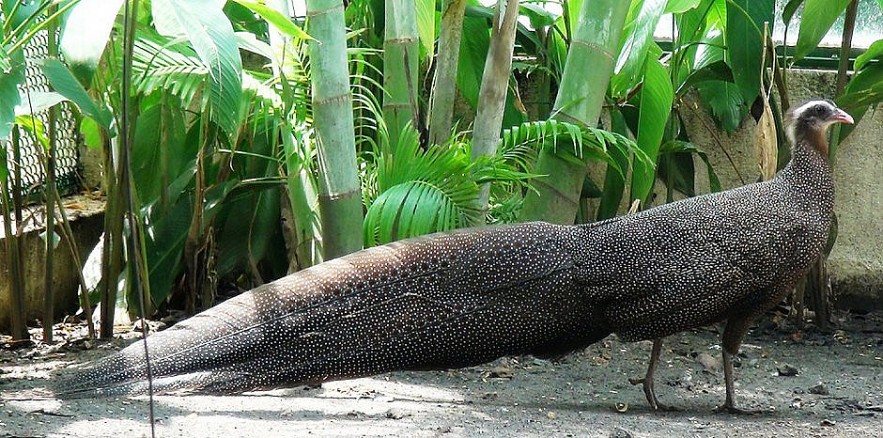 |
| Photo: gbp |
Currently, the number of Vietnamese crested argus is decreasing rapidly due to changes in the environment along with illegal hunting. They have been assessed as Near Endangered on the IUCN Red List.
Truong Son muntjac
Muntiacus truongsonensis, also known as Truong Son muntjac is indigenous to the highland ranges of Indochina. It is named after the Annamite Mountain Range in Vietnam where it was discovered. Its presence has been confirmed in the Hoang Lien Son Range in the Lao Cai province of Vietnam and Southern Laos. Its range limits are unknown but are thought to closely resemble those of Muntiacus rooseveltorum, with the exception that Muntiacus truongsonensis extends into higher elevations.
Muntiacus truongsonensis is a mountain-dwelling cervid, found in dense, tropical, secondary, evergreen forests. Elevations where M. truongsonensis can be found extend up to and possibly exceed 1,000 m.
In 1997, when setting a photo trap in Phong Dien Nature Reserve, the rare species of Truong Son Mang was first recorded. Truong Son muntjac was also discovered in Sao la Conservation Area Thua Thien – Hue.
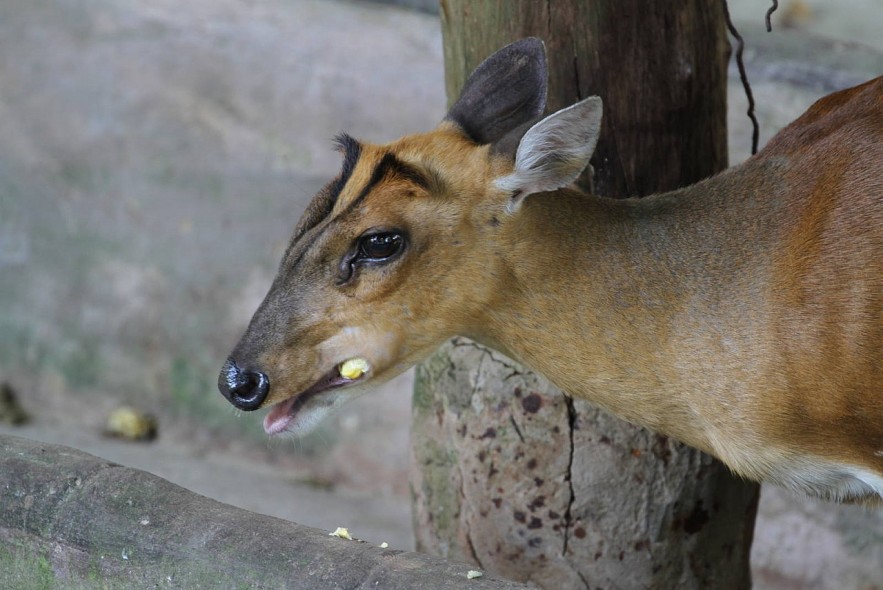 |
| Photo: Zoochat |
The Truong Son muntjac has fine brown or rusty yellow fur, slender four legs, and a fat tail. Information about this animal is of great value and especially in scientific research and ecotourism.
A range of large predators including tigers, leopards, and crocodiles commonly prey upon many muntjacs. Humans are the only confirmed predator of Muntiacus truongsonensis. Potential predatory defense mechanisms of Muntiacus truongsonensis are unknown.
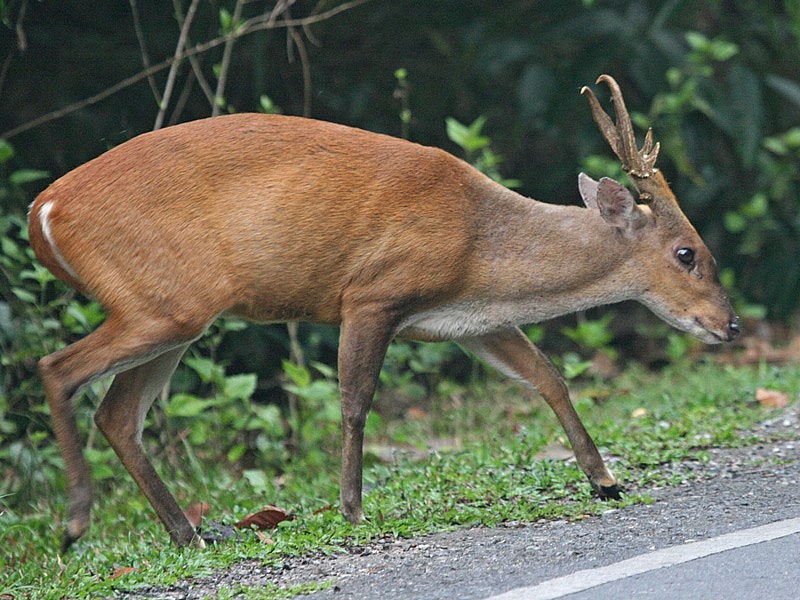 |
| Photo: observation |

